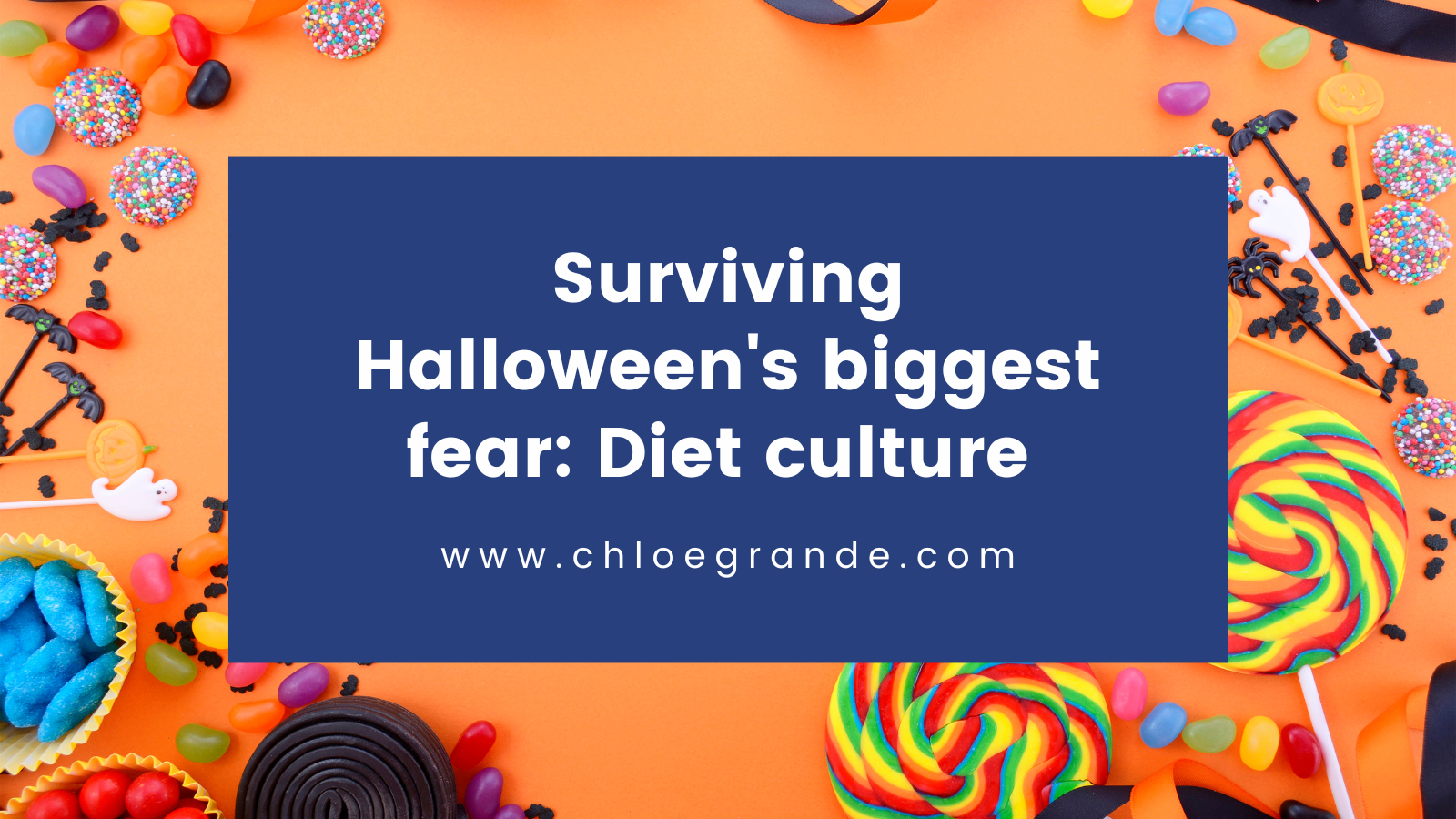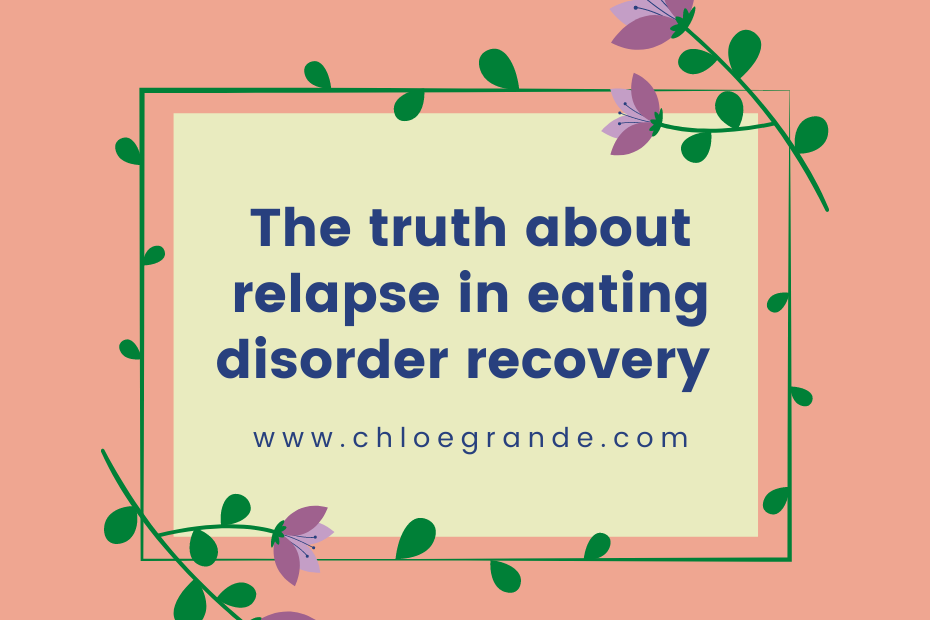In the midst of an eating disorder, it’s hard to think about anything outside of the disease. The thoughts revolving around weight, food, appearance and body image are all-consuming. As you heal, you’ll notice subtle signs that you’re recovering from your eating disorder.
Research shows that your brain actually changes when you have an eating disorder! In one 2021 study, researchers found that people with EDs have altered brain reward processing that reinforce eating disorder behaviours.
The good news is that our brains are incredibly adaptable and continue developing and changing. Hurray! So as someone goes through eating disorder recovery, their thoughts can begin to change for the better.
That certainly happened to me — although it was a slow, gradual process, I’m no longer prisoner to the eating disorder voice inside my head that constantly told me I wasn’t good enough.
In the spirit of ringing in the 2022 New Year, here are the top 22 signs that you’re recovering from your eating disorder.
Signs you're recovering from eating disorder thoughts
22. You think about food less often
It’s no longer a 24/7 thought that affects nearly every decision you make. Body Image Coach Jessi Kneeland wrote a great blog post on this subject: How often do you think about food? She elaborates on how she helps clients stop obsessing and stressing about food, and discover “food neutrality.”
21. You have more appreciation for areas of your life outside of food
Something wonderful that happened when I was first diagnosed is that I found a new passion for yoga. I still enjoy it to this day. I also started journaling more, to help process my eating disorder recovery journey and because I genuinely enjoy writing. What activities do you want to try?
20. Your sleep and mood have significantly improved
In some of the darkest times of my eating disorder, I could barely keep myself awake past 9 p.m. — that’s how deprived my body was of nutrients. It’s an amazing feeling to not wake up exhausted, cranky and famished each day!

19. People have told you they’ve noticed a difference
You seem happier, more energetic and different in a good way. They may say you “look healthier,” and have good intentions about it, which can be triggering if you interpret that negatively. Rest assured no harm was intended. (If you’re worried about saying the wrong thing to someone with an ED, check out this post for advice.)
18. You no longer personally identify with your eating disorder
What I mean by this is that your illness is no longer your sole identity. For example, you don’t see yourself as “binge-eater,” “bulimic,” “orthorexic,” etc. Robyn Baker has written on this topic for Libero magazine, explaining that establishing a new identity can be confusing and scary.
17. Therapy sessions cover subjects outside of your eating disorder
As the topic of conversation shifted away from my ED, I began to explore things like depression, perfectionism and anxiety during my sessions. In fact, once I’d progressed further into ED recovery, I learned about my social anxiety diagnosis — something that hadn’t even been on my radar before!
16. You buy clothes that fit, not “goal” clothes
If the clothes require you to change your body to feel comfortable in them, it’s staying on the rack. Instead, you focus on how the fabric fits and how you feel.
Pro tip: Try cutting off sizing labels as soon as you purchase new clothes. You don’t need that reminder and it doesn’t matter!
15. You think about future dreams and goals
What did you aspire to be as a kid? What parts of your life have been undervalued because of your eating disorder? Recently, I rediscovered my passion for writing and realized how badly I wanted to make blogging more than a hobby. It gives me energy to know I’m working towards that goal each day.

14. You don’t feel the need to restrict or binge around holidays and big life events
You mean you don’t need to cut back before the Christmas dinner? And losing weight for a wedding is irrelevant? Mind blowing! Imagine the pressure that takes off. (More about binging around Halloween season here).
13. You enjoy previous “fear foods"
For me that means smothering a bagel with cream cheese for breakfast, savouring every last bite of a buttery croissant and drinking beverages other than water with meals. What food have you been craving that your eating disorder didn’t let you enjoy?
12. You no longer keep a mental running list of everything you ate
Or if you’re a pen and paper person, you no longer have random lists of food you ate during the day lying around. I’m ashamed to admit how many notebooks I had filled with food lists. It’s refreshing to no longer keep tabs.
11. You agree to social plans that include food, without checking menus online first
I used to feel like if I ordered the “healthiest” item on the menu, I was obeying my ED but if I ordered the polar opposite, I was overcompensating. Now, I order what my body craves, whether that’s pasta, salad and fries, a bunch of appetizers or something unexpected. And I don’t plan it in advance!
10. You spend less time body checking
This means less time looking in mirrors, pinching body parts, measuring body parts, weighing yourself or changing your appearance a million times before going out. For more info, Healthline has an in-depth article on body checking and how to control it.
9. You feel less nostalgic about old eating disorder behaviour
You start to see your eating disorder for what it really is — an enemy. Mental health advocate Cara Lisette has written about the horrible lies her eating disorder told her. A great quotation from the piece: “Did people consider anorexia impressive, or is it recovery that’s actually an achievement?”

8. You’re not afraid to say "no" to events or things that trigger your ED
This could mean telling your dietician you don’t want to be weighed or shutting down diet talk when you’re around friends. Did you know there’s a card you can carry asking health practitioners not to weight you, unless medically necessary?
7. You’re more accepting of your body
That doesn’t necessarily mean full-out body positivity, but more of a neutral approach where your self-worth doesn’t hinge on your appearance. I’m sure you’ve heard the saying: “Your body is the least interesting thing about you.” It’s true! And now you can believe it.
6. You’re more in tune with your emotions
Food becomes less and less of a coping mechanism when you can understand that the feeling you’re experiencing isn’t “I’m fat” or “I’m unworthy” or “I’m a failure.” I credit my therapist for teaching me more about the mind-body connection.
5. Eating in front of people feels less scary
And you’re no longer comparing the amount of food you’re eating to others! I had one therapist ask me what made me feel better about myself by eating less than others. Her question shocked me. I’m proud to say that constant food comparison is no longer part of my life.
4. You can talk freely about eating disorder recovery with loved ones
It may feel as if your eating disorder is no longer a big guilty secret that you need to hide. If you’re a writer like me, you may even begin opening up with a blog post or social media post about what your recovery journey has been like. Recovery is a badge of honour, not shame.
3. Relationships don’t seem as straining
You actually enjoy being around people and miss the activities that your eating disorder stripped away from you. For instance, I avoided the movie theatre for sooo long because I didn’t want to eat popcorn. Now, I can make movie plans without worrying about how much butter is in popcorn.

2. You're reading this list and nodding along
Virtual high-five! Recovery is no easy process. You have to celebrate the little wins, whether that’s putting extra condiments on your sandwich, buying clothes that fits your body or ordering take-out from a new restaurant without looking at the caloric content.
1. You feel more present in your life
You are wide-open to new experiences and ready to step outside your comfort zone. Spontaneity and adventure await you — words that were never included in your eating disorder’s vocabulary. Enjoy the journey, my friend.
Wow, writing out this list of eating disorder recovery signs reminded me how far I’ve come in my own ED journey. It’s a great reminder that my eating disorder has much, much less power over my life than it did before.
Sometimes we need these nudges to keep us going forward, especially when 2022 may be off to a rockier, more tumultuous start (thanks Omicron!) than expected. No matter the challenges that this year will bring, your recovery is always a worthwhile priority. Saying good-bye to ED thoughts is a life well worth living. You can do it! 🌱




I love that you incorporated all of those external links! There are some really cool new resources in there!
Happy you find the resources useful! I didn’t even realize there were so many signs of eating disorder recovery until I wrote this post 🙂
This was such a simplified, but detailed list that really helped me to reflect on where I still struggle, but to also acknowledge all the ways that I’ve grown. Thank you for sharing your growth and insight – and for providing so much hope around recovery!
Also, I absolutely love the new design and layout of your website, looks amazing!!
Thank you so much for such insightful feedback, Victoria! It’s key to acknowledge where you’ve made progress. Even I can’t relate 100% to all the signs that I’m recovering from my eating disorder 100% of the time. Some days are harder. Definitely keep celebrating all your small wins! And thank you for the website feedback, that means a lot! Yay!